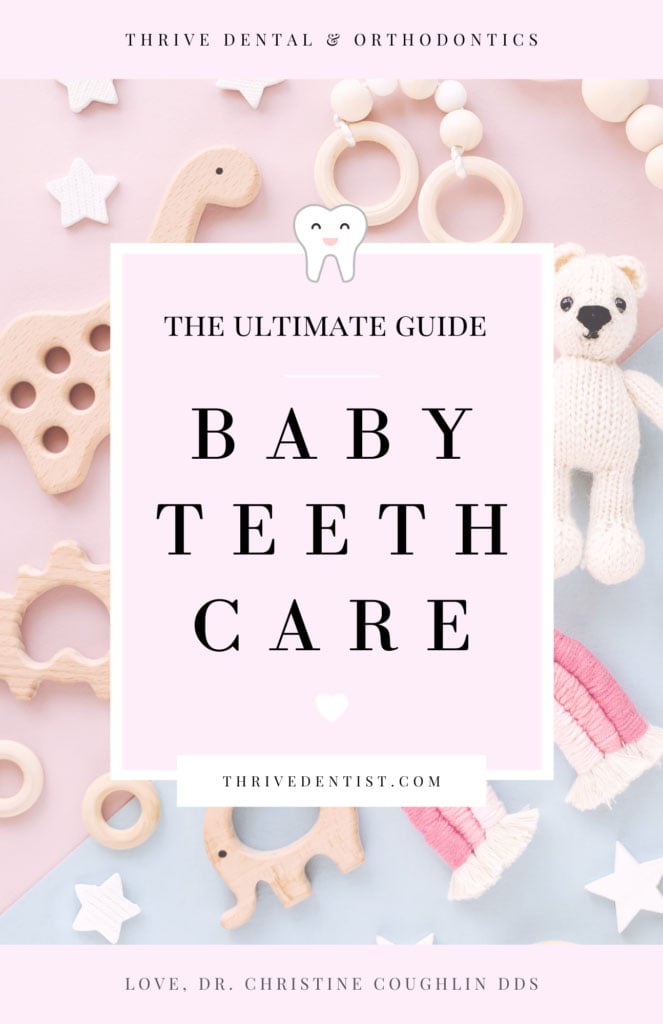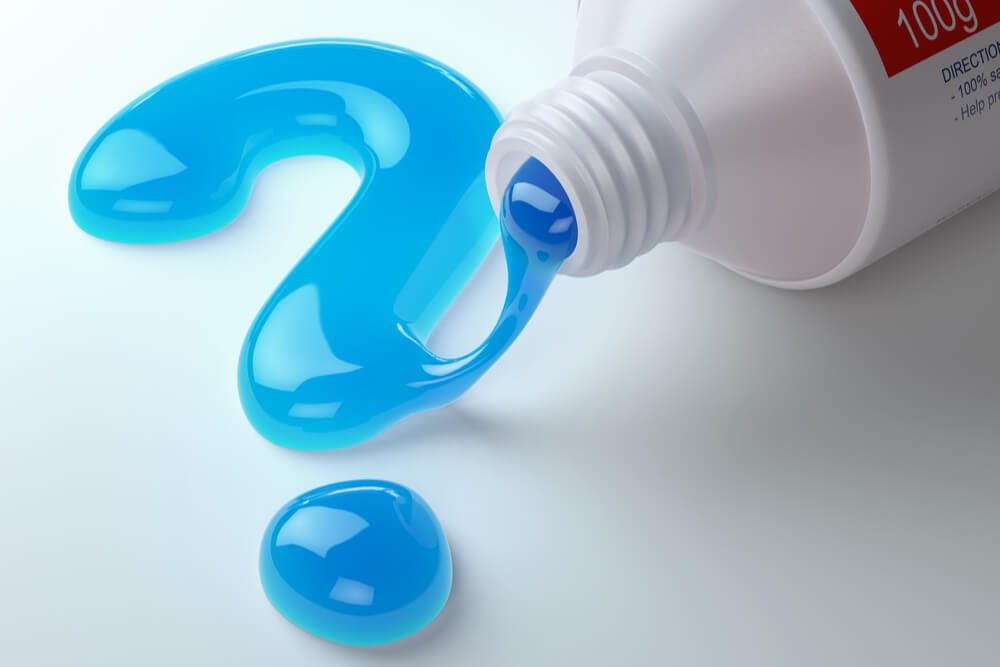“What’s the best toothpaste?” This is the number one question patients ask me.
Unfortunately, conventional toothpastes contain toxic ingredients that are harmful to our health.
This includes fluoride, which is toxic in large amounts.
So it’s important to know what’s in the toothpaste that you put in your mouth every day.
In this article, I’ll discuss which ingredients to avoid and which ones are best for your dental health.
Toothpaste Ingredients to Avoid
For dental health and overall wellness, I always recommend using clean, non-toxic products that are safe for the whole family.
Conventional toothpastes, unfortunately, contain ingredients such as endocrine disruptors, and cinogens that are harmful to your health. These include:
- Triclosan: a pesticide and hormone disruptor.
- Sodium Lauryl Sulfate (SLS): an irritant that causes canker sores.
- Titanium dioxide: classified by the Environmental Working Group as a possible carcinogen.
- Artificial dyes and colorings
- Fluoride: which is toxic is ingested in large amounts.
But if you’re looking to switch to a natural toothpaste that is fluoride-free, be aware that you may be putting yourself at risk for an increase in cavities.
Keep reading for a better alternative.
What is Hydroxyapatite (HAp) Toothpaste?

If you’re looking for a safer, non-toxic alternative to fluoride for preventing cavities, hydroxyapatite toothpaste is an excellent option.
Hydroxyapatite (HAp) is a form of calcium that makes up the majority of your tooth structure. It’s what makes your teeth strong and hard.
The biggest advantage of HAp is that it helps rebuild tooth structure without any known side effects (unlike Fluoride).
My favorite brand is Boka. I used it every day and I also recommend it for my patients.
Hydroxyapatite (HAp) for Tooth Remineralization
Tooth decay and damage occur when the demineralization (the breakdown) of your teeth outweighs remineralization (building up). These processes are happening all the time in your mouth and are impacted by your diet, oral hygiene, oral habits, lifestyle, and overall, your oral microbiome.
You can reverse and prevent cavities by remineralizing your teeth. HAp is a powerful and safe way to do that.
Note: You can only reverse tiny, incipient cavities in the early stage of decay. More developed cavities will require dental treatment.
The best toothpaste for babies
Did you know that babies need special toothpaste?
Don’t be fooled by way the big brands market their products. Even the “kids” toothpastes contain harsh chemicals and toxins that are harmful to your baby’s development.
Check out my article about how to choose the best non-toxic toothpaste for your baby, where I recommend my three favorite kids toothpaste that I recommend.
And get the complete guide for caring for your baby’s teeth for a lifetime of great dental health.

Summary
To summarize, it’s important to understand which toothpaste ingredients to avoid and which ingredients are good for your dental and overall health.
The truth is, the big brand products contains toxic ingredients that are harmful to our health. So we need to be aware of what is in the toothpaste we put in our mouths daily.
Avoid harsh chemicals, carcinogens, and hormones disruptors such as triclosan and titanium dioxide.
For a non-toxic alternative for preventing tooth decay, try hydroxyapatite toothpaste!
And make sure to use only safe and gentle baby toothpaste for your little one to ensure their safety and development.



